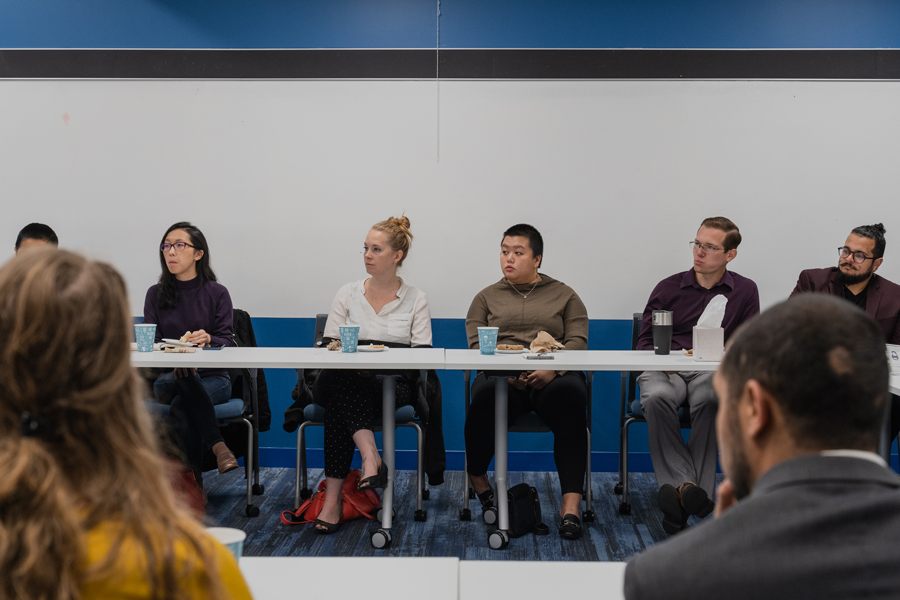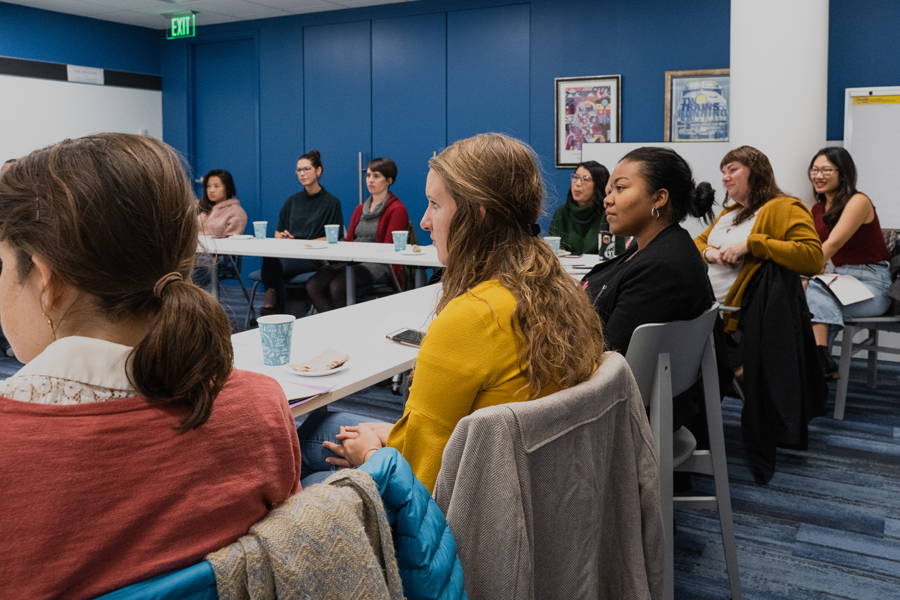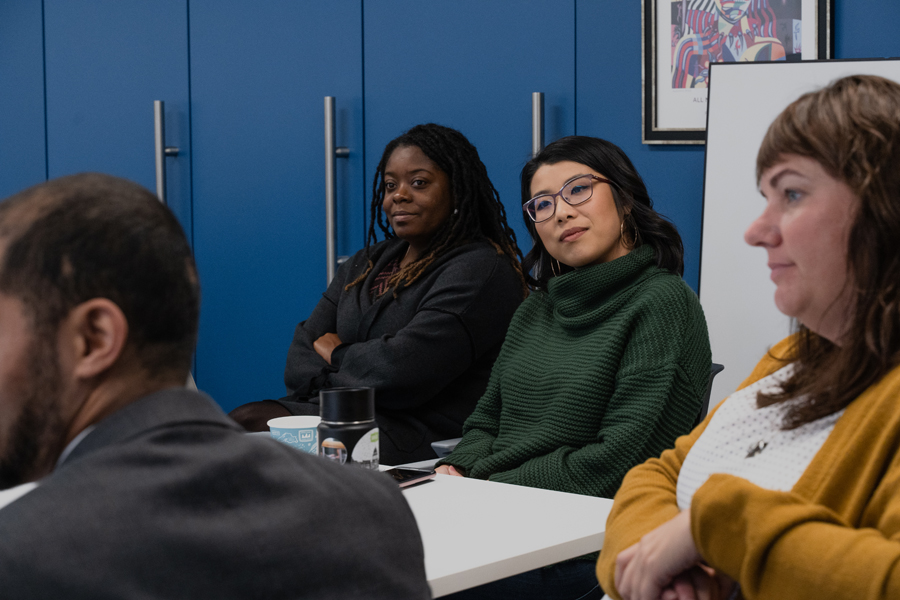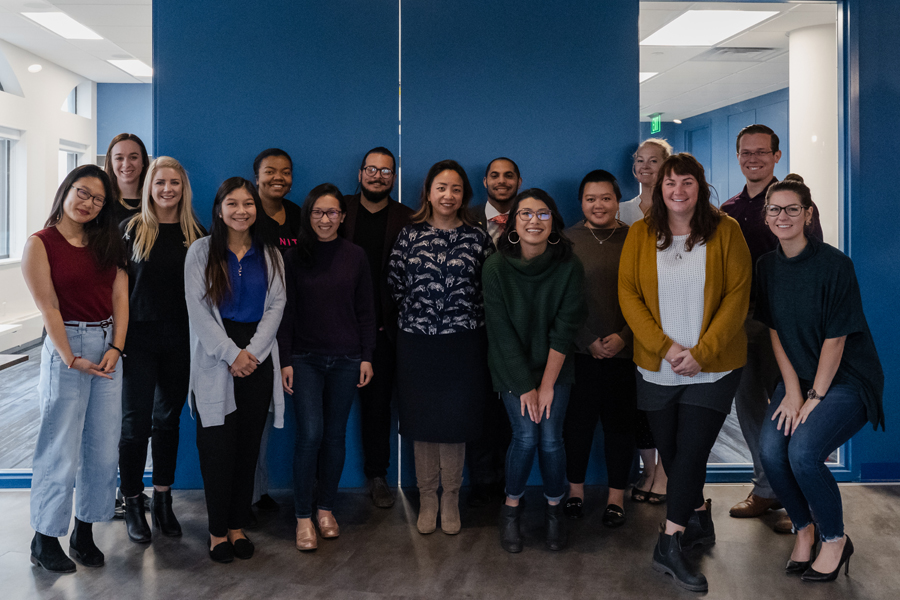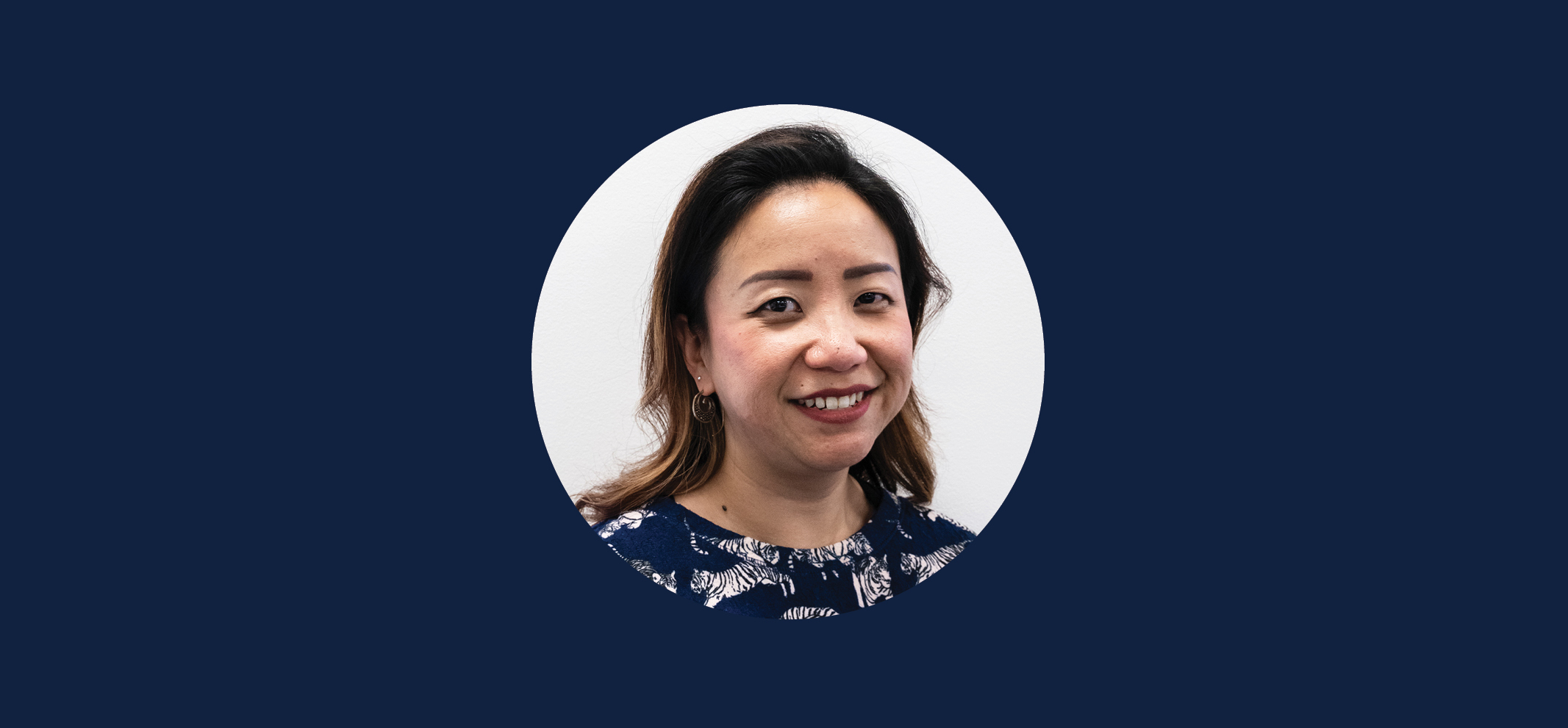
Words by Julie Zhou & Photos by Stephanie Nardi
Despite the unseasonably early snow drifting through the air outside, the conference room of Propel Nonprofits is bright and bustling as young nonprofit professionals from across the Twin Cities gather around coffee and bagels.
“It’s odd not to consider myself one of the ‘young’ people anymore,” Kathy Mouacheupao laughed as she pulled out her seat, getting ready to kick things off at YNPN’s October Leadership Breakfast.
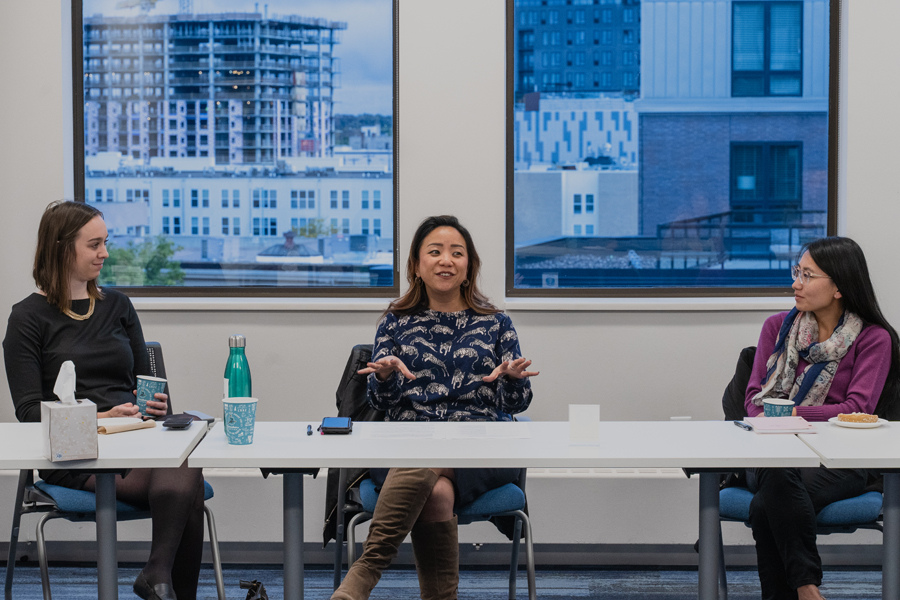
Advocacy from a young age
“It’s important to me,” Mouacheupao began, “to start my story with my family and my background.”
Mouacheupao’s family, among the first Hmong refugees to arrive in Minnesota in the wake of the American War in Vietnam, created a home in which both community and accountability were woven into the fabric of day-to-day life. Mouacheupao credits her mother, a fierce advocate for domestic violence prevention in the Twin Cities, with fostering her interest in community engagement and advocacy.
“When she first came to Minnesota, she got a job in a women’s resettlement program at Lao Family,” Mouacheupao shared. “There, she worked with Southeast Asian women—primarily Hmong women—who were resettling in America, and she started to notice that there were some women that didn’t want to leave at the end of the day.”
As she continued her work at Lao Family, Mouacheupao’s mother realized that many of these women were being abused when they went home.
“So she did what she knew,” Mouacheupao said candidly, “and she’d just bring them home with her.”
“My mom became one of the first Hmong women to enter the court systems in Minnesota to advocate on behalf of women and children in the Twin Cities. That’s the household I grew up in, and these were the kinds of values that were instilled in me from a young age.”
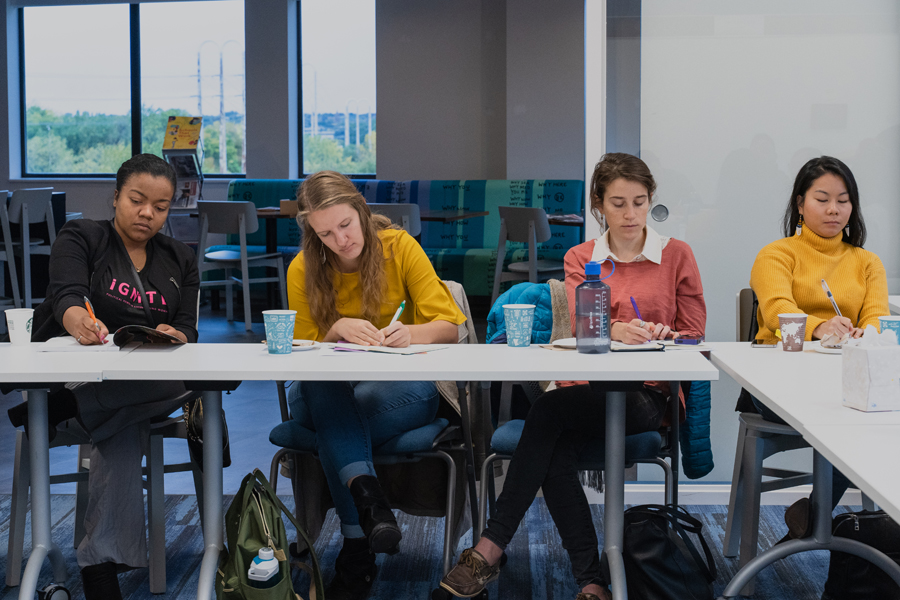
The intersection of arts, culture, and community development
In college, Mouacheupao interned for an organization called Asian Women United, the only Asian organization in the Twin Cities doing intervention work with people experiencing domestic violence. It was there that her path took a turn: “So I’m interning at Asian Women United, and I really love this work, it’s how I grew up, and it’s important to me—but it’s unpaid. Then I learned about this job at the Center for Hmong Arts and Talent (CHAT).”
“It was a contract position. For twelve weeks Mouacheupao and a videographer visited CHAT to teach young people poetry and videography. At the close of the contract, CHAT offered her a full-time job; and Asian Women United did too.
“I loved my work at CHAT, but through my internship, I had already started to build relationships with the women and children at the shelter,” Mouacheupao recalled. “So said yes to the job at Asian Women United.”
The universe had other plans. A few months into her time at Asian Women United, The Great American History Theater called to invite Mouacheupao to facilitate a talkback after the world premiere of the play Hush, Hush, which centered around domestic abuse in the Hmong community.
For Mouacheupao, it was a transformative moment. Though she’d hosted community forums around domestic violence before, she had never seen an audience as large or as invested as the 300 attendees at the Great American History Theater.
“When I was younger, I knew art was fun. But in that moment, art became something so much more powerful,” she acknowledged. “It became this tool to inspire, to instill pride in your cultural identity, to foster discussion and community. And then I was hooked.”
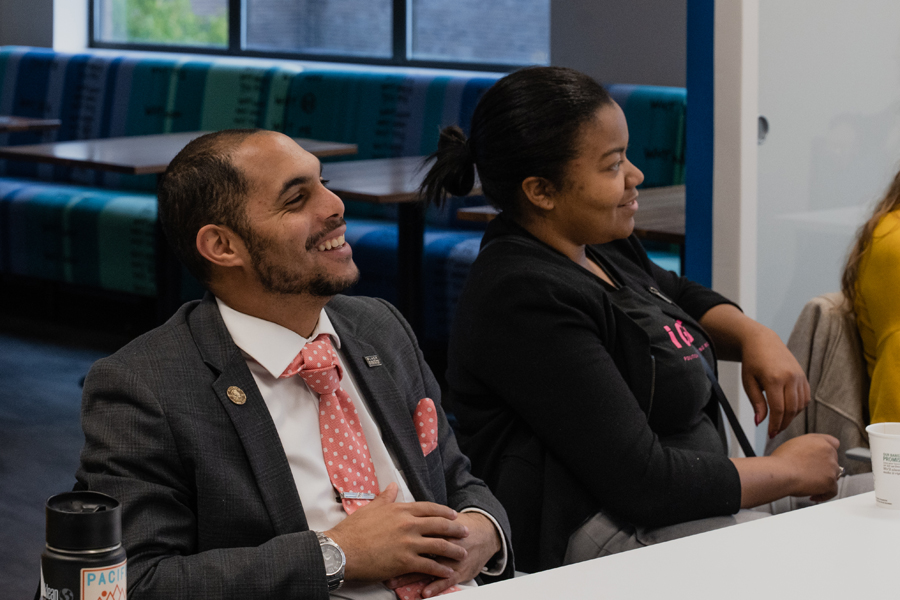
Lifting up marginalized voices
Soon after facilitating that talk-back, Mouacheupao said goodbye to Asian Women United and took a full-time job at CHAT. Two years later, she would become Executive Director.
“I had no arts management training, no arts administration training,” she shared. “I just loved the possibility of what art could do for my community; and that is what drove me.”
In that role, Mouacheupao grew CHAT beyond the Twin Cities, exploring and illuminating the Hmong American experience across Minnesota. After six years as Executive Director, she resigned, citing a new generation of leaders for CHAT and a new chapter for her own career. In the years after, she took on a Bush Foundation fellowship, a leadership position at Local Initiatives Support Corporation, and number of board and volunteer roles across the Twin Cities.
Now, as the Executive Director of the Metropolitan Regional Arts Council (MRAC), Mouacheupao leads a team working to improve arts access for communities in the seven county metropolitan area. As one of the 11 regional arts councils in Minnesota, MRAC’s funding is derived primarily from appropriations from the Minnesota State Legislature.
“It’s important to me that we are responsible stewards of these public grant dollars,” Mouacheupao emphasized. “That we hold ourselves accountable to our communities and our constituents.”
Though their region comprises only 4% of Minnesota’s geography, its population is approximately 50% of the state’s total. It is an enormous responsibility, and not one that she takes lightly. Under Mouacheupao’s leadership, MRAC has begun to take on new ways to advance equity in both the communities they serve and the grants they administer.
Her fearlessness to tackle structural and institutional change has led to a deeply collaborative office culture, revamped application processes, and the most diverse staff and board in the history of the organization. Mouacheupao attributes much of that change to a community-centered approach to leadership.
“Before I make a decision, I like to hear from everyone who might be impacted by that decision: their opinions, their perspective, their concerns. That can come off as being indecisive or unsure. But I’m a person who has never been asked, whose community has never been asked. I’ve been fighting my whole life to be asked. So why would I not ask other people?”
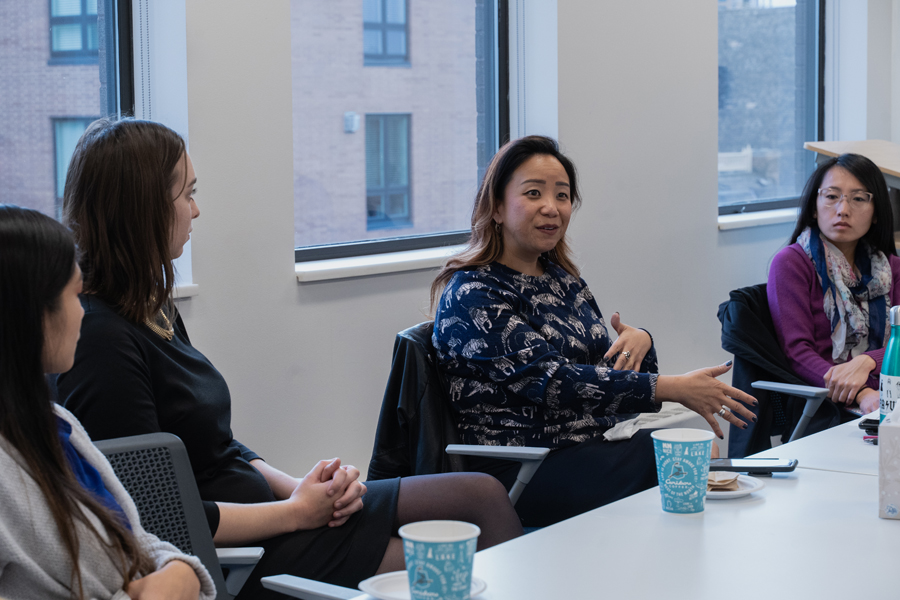
On equitable grantmaking
“To be responsible grantmakers, we have to look at who is not getting that money. We have to look at where disparities exist, and why. What about our application process is a barrier? Who was this application created for? Who is doing better in the system that we’ve perpetuated for so long?”
On the importance of hard conversations
“Whoever thought that diversity would be the promised land has never truly experienced diversity. Because let me tell you, it is hard. Diversity is about bringing different perspectives, different lived experiences into one room to address an issue. And that’s hard to manage. It’s hard to facilitate. But it’s essential.”

